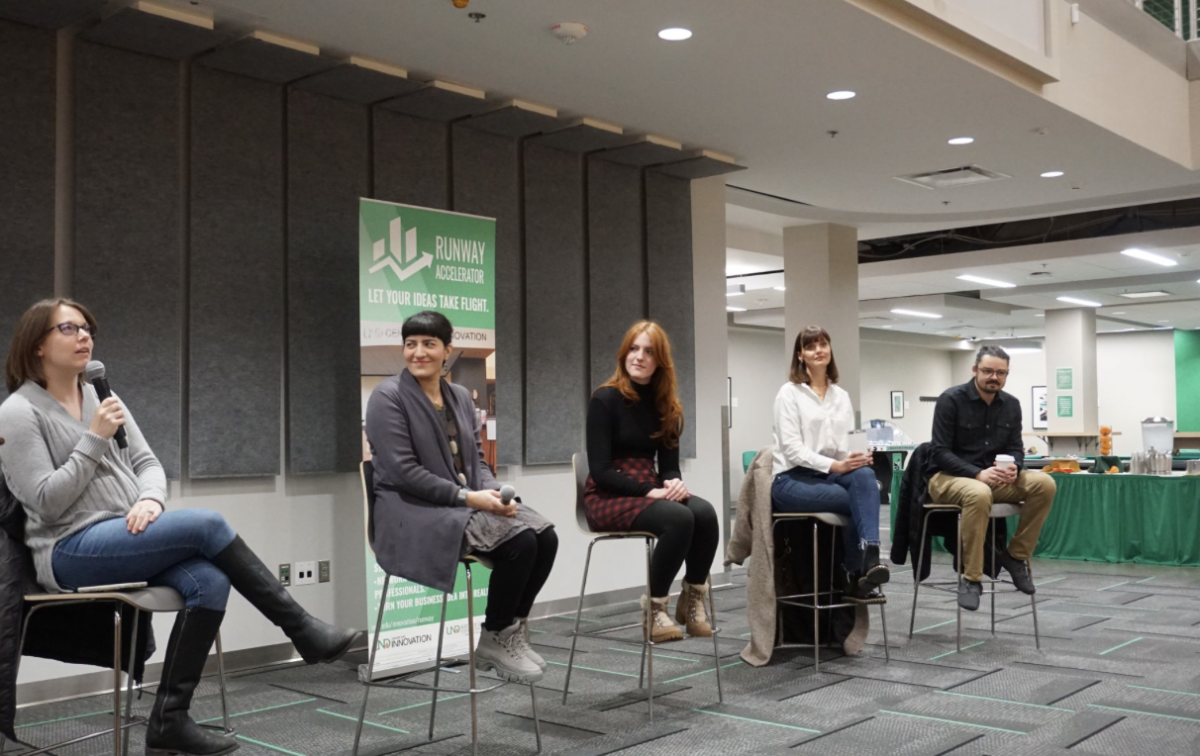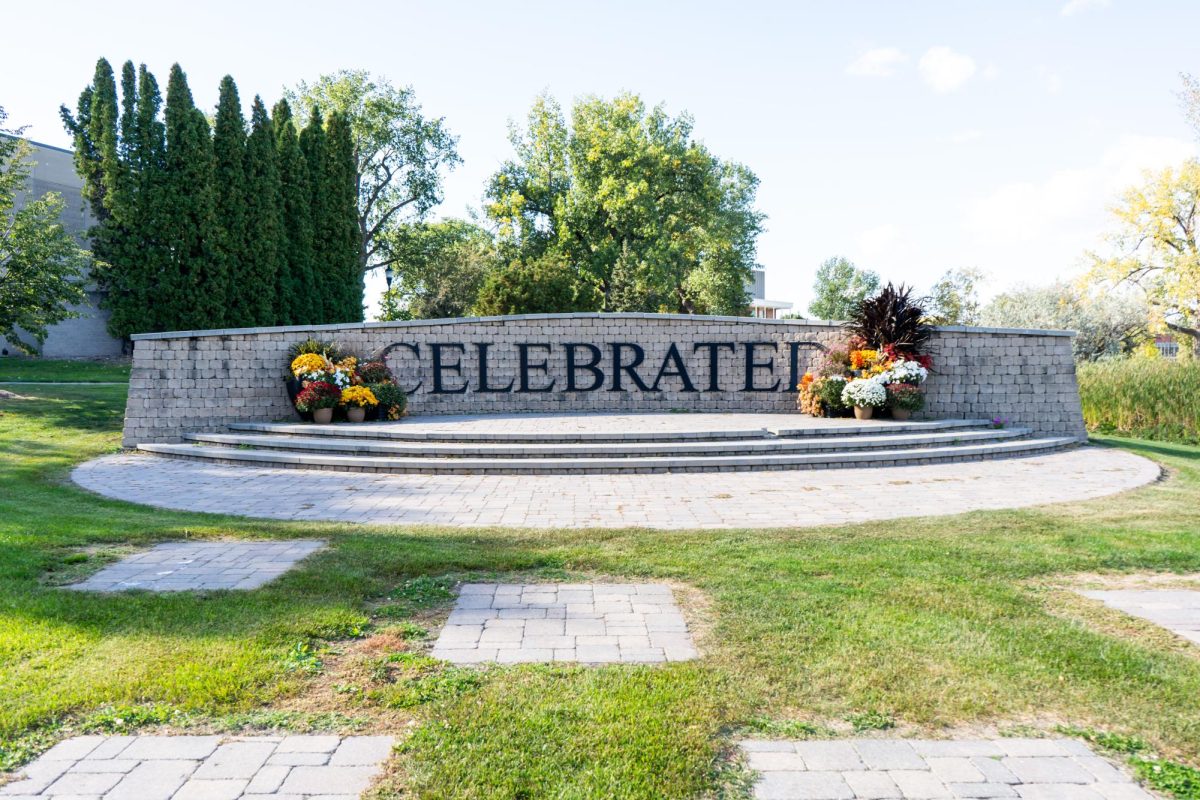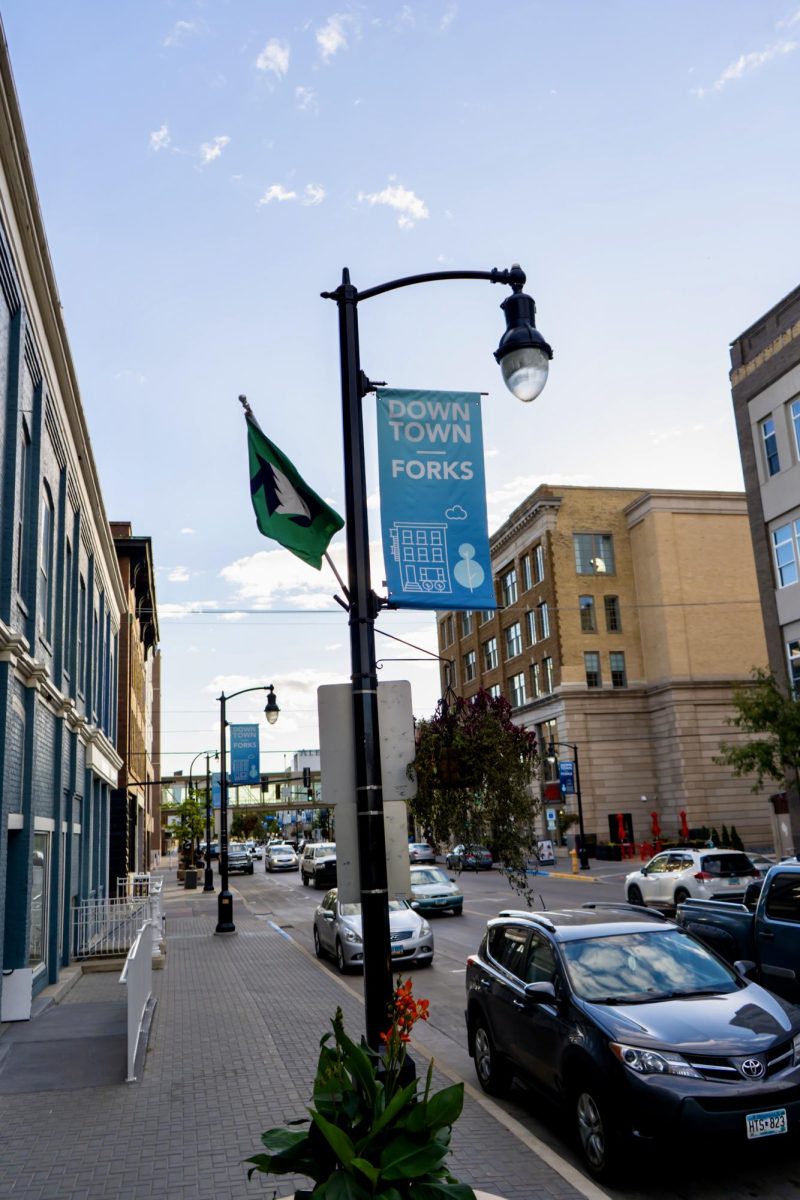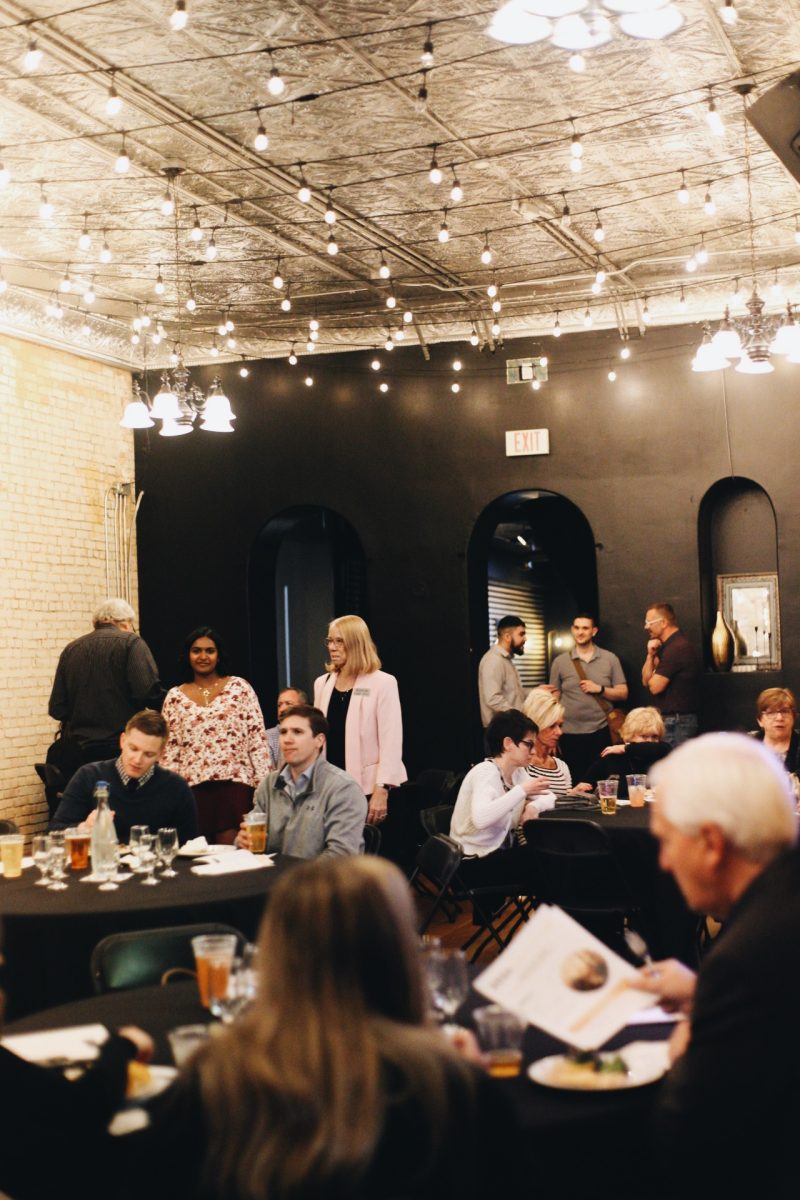The University’s Memorial Union saw a different kind of energy surge as the University of North Dakota Center for Innovation, in collaboration with Gener8tor, hosted an event on the morning of November 9th that was centered on entrepreneurship. The morning was dedicated to a session where aspiring student entrepreneurs and local business owners shared their origin stories and business trajectories. The event was moderated by the Managing Director of Gener8tor ND, Lindsay Breuler, who navigated the conversation through the intricacies of launching and sustaining a startup.
Gener8tor, a name synonymous with business growth and innovation, set the stage for the day. Sona Lesmeister’s opening remarks paved the way for Breuler, who shared insights into Gener8tor’s accelerator program that endows $100,000 to five companies upon completion. The program, designed to assist businesses from the ideation to solution stage, is a unique opportunity for many emerging startups.
The panel is comprised of four diverse entrepreneurial minds. Moones Alamooti from RAZORBACK P.I.G. has a PhD in Physics working on a Master of Science degree in energy engineering, with a team of three in the energy sector. Averie Eixenberger, a Boise native studying Aviation and English, is creating a niche aviation-based podcast through Rose Thorne Productions. Brianne Osowski, with her brainchild Tailorie, seeks to revolutionize the consumer-business dynamic, likening it to a dating app that matches businesses with consumers based on shared values. Aaron Mooney, a North Dakota local since fourth grade, is refining the fairness in insurance claims through his venture, Tugboat.
Alamooti’s journey into entrepreneurship is deeply rooted in her academic background. Working with her team at GeoTinkers, she developed alongside them an adaptive speed control pipeline intervention gadget, which promises to optimize the cleaning process and reduce inspection time and costs in the geothermal energy sector.
Eixenberger, identifying the lack of representation for women and minorities in aviation podcasting, decided to fill this gap. Her mission is to provide a platform and voice to those underrepresented in this field.
Osowski’s Tailorie was born out of her MBA experience at UND and her stint in retail, both in New York City and North Dakota. With over a decade in the state, she has identified and is addressing the disconnect between small businesses and their potential customers while matching consumers with brands that fit their values.
Mooney’s Tugboat is an answer to the problem of handling small to average insurance claims, an area often overlooked by the industry. His entrepreneurial spirit was fueled by the realization that there was a gap in the market that Tugboat could fill and needed to stop contributing to a problem being perpetuated in his industry.
Breuler posed the critical question of how these entrepreneurs moved from concept to action. The responses were as varied as the panelists’ backgrounds. Mooney, having worked in insurance, was accustomed to problem-solving for others. His venture, however, was about identifying a systemic issue and creating a solution that filled a market void.
Osowski’s narrative was one of evolution. From opening retail stores for the freedom and travel opportunities they provided to recognizing broader industry issues, her journey was a tale of learning and adaptation. She realized the potential in her problems when she saw they were not unique to her alone.
Eixenberger’s challenge was not finding a problem; it was narrowing down which one to solve. Her idea of creating a book club gave way to a more significant venture when she pinpointed the lack of diversity in aviation podcasting.
Alamooti emphasized the difficulty of transitioning from a student project to a business venture. Mentorship played a critical role in this transformation, helping her team at GeoTinkers to navigate the complex Department of Energy programs and translate their research into a viable business model.
The panelists unanimously agreed on the importance of community and mentorship in their entrepreneurial pursuits. Gener8tor’s program, along with the UND CFI’s resources, were pivotal in their journeys. Breuler’s key takeaway was the necessity of ensuring the problems entrepreneurs aim to solve are widespread and have a market large enough to sustain a business solution.
In response to Breuler’s inquiry about the early stages and the significance of support, the panelists shared their individual experiences. Osowski spoke of the snowball effect in networking, beginning with her MBA contacts as a graduate student at UND, which eventually led her to vital resources like the EDC and funding through the ND lift fund. Mooney highlighted the advice from his CTO, which was to not commit to coding before having a product, allowing them to remain nimble and hands-on in the development phase.
Eixenberger advised budding entrepreneurs to make a comprehensive list of what they need to start, emphasizing the importance of funding and business education. Alamooti added that the mentorship she received helped her navigate the business utility of her solution.
As the event wrapped up, the conversation shifted to the courage required to embark on the entrepreneurial path. Osowski could not ignore the problem she saw, turning her restlessness into a resolve to find a solution. Mooney’s drive came from a desire to solve rather than contribute to the issues he saw in insurance claims.
Finishing the event, Lesmeister ended by telling us about future opportunities to work with Project Runway and their pitch event happening on December 5th; she welcomes students to see what their fellow scholars have been working on. She also mentioned ICORPS, a national program with five cohorts starting June 17th with December 22nd being the deadline to apply. With the stipulation being participating as a team for the program.
Breuler announced the Gener8tor program having two opportunities for students to join with the next happening in the Spring around March. A seven-week part time program with their accelerator program being a full time 12 weeklong program for companies further along in their process.
“I encourage students to reach out to see what resources are available,” Breuler said and voice their concern if a program does not fit their need, so that resources from the Center for innovation can be put together for relevant programs that students want to see.
As students begin to contemplate what to pursue for their future, there are plenty of resources available to those who wish to solve a need that they may find along their journey. Whether it is leaving the university and start their career trajectory in the corporate world or creating a solution to problems in entrepreneurial spirit, Alamooti gives some relevant advice with a quote from Churchill, “never, never, never, and never give up.”
Davíd Moreno is a Dakota Student General Reporter. He can be reached at davíd.moreno@und.edu.







